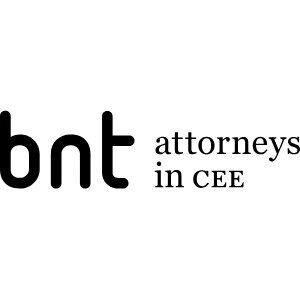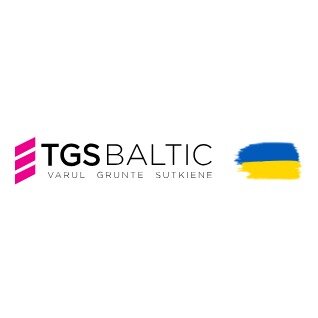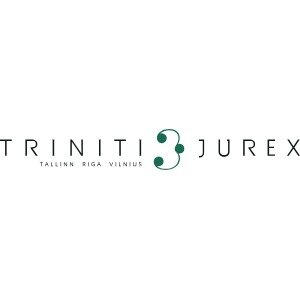Best Acquisition / Leveraged Finance Lawyers in Estonia
Share your needs with us, get contacted by law firms.
Free. Takes 2 min.
Or refine your search by selecting a city:
List of the best lawyers in Estonia
About Acquisition / Leveraged Finance Law in Estonia
Acquisition and leveraged finance is a crucial area of law that facilitates the funding of mergers, acquisitions, and management buyouts by using a combination of equity and significant amounts of borrowed money. In Estonia, this field has grown in importance with the increasing participation of both local and international investors and financial institutions. The legal framework ensures that transactions are structured, negotiated, and executed in compliance with Estonian and EU laws, protecting the interests of all parties involved while fostering a stable financial environment.
Why You May Need a Lawyer
Acquisition and leveraged finance transactions are complex undertakings that involve significant regulatory, legal, and financial considerations. You may need legal assistance if you are:
- Acquiring a business through debt financing or need to raise capital for a corporate expansion
- A financial institution offering loans for acquisition or leveraged transactions
- A venture capital or private equity investor looking to finance a buyout or similar transaction
- A borrower or guarantor needing to understand your obligations and risks
- An advisor handling contract negotiations, due diligence, and regulatory compliance
Local Laws Overview
Estonia's acquisition and leveraged finance sector is shaped by a mix of local, EU, and international regulations. Some key aspects include:
- Contracts Law: The Law of Obligations Act governs contracts, including loan and security agreements vital to acquisition finance.
- Corporate Law: The Commercial Code informs processes like acquisitions, shareholder rights, and corporate structuring.
- Collateral and Security: Security over assets, pledges, and guarantees are regulated to protect lenders, with registration requirements for certain assets.
- Insolvency and Restructuring: The Bankruptcy Act and Reorganisation Act detail procedures in the event a company faces financial distress after a leveraged transaction.
- Financial Regulation: Banks and financial institutions must comply with Financial Supervision Authority (FSA) rules, anti-money laundering laws, and EU regulatory standards.
- Cross-Border Transactions: Financing involving foreign parties is governed by private international law and EU directives, with considerations for capital movement and foreign exchange.
Frequently Asked Questions
What is leveraged finance?
Leveraged finance refers to funding strategies that rely on a higher proportion of third-party debt compared to equity to acquire companies or assets.
What types of security interests can be taken in Estonia?
Common security interests include pledges over shares, movable assets, receivables, mortgages over real estate, and bank account pledges. Some require registration.
Can a foreign bank provide acquisition financing in Estonia?
Yes, but the bank must comply with EU passporting rules or be licensed by the Estonian Financial Supervision Authority if operating on a cross-border basis.
Are there any restrictions on providing financial assistance for acquisitions?
Yes. Estonian law restricts companies from providing financing or security for the acquisition of their own shares, subject to specific exceptions and procedures.
What is the usual process for securing a loan for an acquisition?
The process typically involves negotiation, due diligence, agreement on financing terms, drafting loan and security documents, and registering security interests if required.
Do acquisition loans need to be registered or notarized in Estonia?
Most loan agreements do not require notarization, but certain security documents (such as real estate mortgages) do require notarization and registration.
How are cross-border leveraged finance transactions regulated?
Such transactions must comply with Estonian law, applicable EU directives, local law in other relevant jurisdictions, and private international law rules.
What tax considerations apply in acquisition finance deals?
Key considerations include interest deductibility, withholding tax, VAT on fees, and transfer pricing rules. Professional tax advice is strongly recommended.
What happens if the borrower becomes insolvent?
Lenders rely on their security rights to recover debts. Estonian bankruptcy and reorganisation laws govern creditor priority and procedures in insolvency.
Why is legal due diligence important in acquisition finance?
Due diligence assesses the target’s legal, financial, and operational status, helping to identify risks, validate value, and ensure compliance, which informs deal structure and risk mitigation.
Additional Resources
For further information and assistance, consider reaching out to the following Estonian bodies and organizations:
- Estonian Financial Supervision Authority (FSA) - oversees banks and financial service providers
- Estonian Chamber of Commerce and Industry - offers business and legal guidance for companies
- Ministry of Justice - provides information on Estonian business, insolvency, and contract law
- Estonian Bar Association - directory of qualified legal professionals
- Leading Estonian law firms specializing in banking, finance, and M&A transactions
Next Steps
If you are considering or involved in an acquisition or leveraged finance transaction in Estonia, it is important to seek professional legal counsel early in the process. A specialist lawyer can assist with:
- Assessing your objectives and risks
- Conducting thorough due diligence
- Drafting and negotiating loan and security documentation
- Ensuring regulatory compliance and effective structuring
- Representing your interests in negotiations and ongoing monitoring of your rights
Lawzana helps you find the best lawyers and law firms in Estonia through a curated and pre-screened list of qualified legal professionals. Our platform offers rankings and detailed profiles of attorneys and law firms, allowing you to compare based on practice areas, including Acquisition / Leveraged Finance, experience, and client feedback.
Each profile includes a description of the firm's areas of practice, client reviews, team members and partners, year of establishment, spoken languages, office locations, contact information, social media presence, and any published articles or resources. Most firms on our platform speak English and are experienced in both local and international legal matters.
Get a quote from top-rated law firms in Estonia — quickly, securely, and without unnecessary hassle.
Disclaimer:
The information provided on this page is for general informational purposes only and does not constitute legal advice. While we strive to ensure the accuracy and relevance of the content, legal information may change over time, and interpretations of the law can vary. You should always consult with a qualified legal professional for advice specific to your situation.
We disclaim all liability for actions taken or not taken based on the content of this page. If you believe any information is incorrect or outdated, please contact us, and we will review and update it where appropriate.
Browse acquisition / leveraged finance law firms by city in Estonia
Refine your search by selecting a city.














